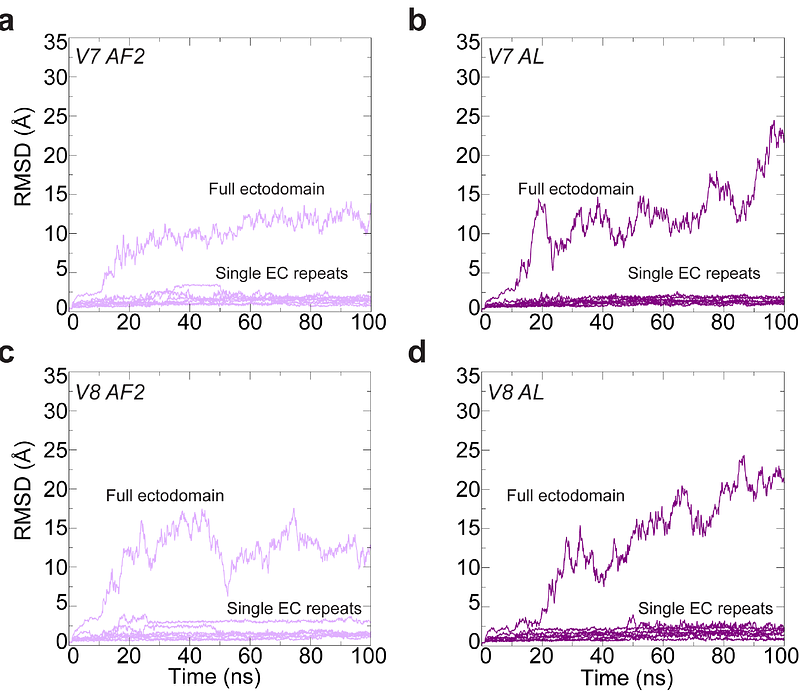Elasticity and Thermal Stability are Key Determinants of Hearing Rescue by Mini-Protocadherin-15 Proteins

Elasticity and Thermal Stability are Key Determinants of Hearing Rescue by Mini-Protocadherin-15 Proteins
De-la-Torre, P.; Wen, H.; Brower, J.; Martinez-Perez, K.; Narui, Y.; Yeh, F.; Hale, E.; Ivanchenko, M. V.; Corey, D. P.; Sotomayor, M.; Indzhykulian, A. A.
AbstractProtocadherin-15 is a core protein component of inner-ear hair-cell tip links pulling on transduction channels essential for hearing and balance. Protocadherin-15 defects can result in non-syndromic deafness or Usher syndrome type 1F (USH1F) with hearing loss, balance deficits, and progressive blindness. Three rationally engineered shortened versions of protocadherin-15 (mini-PCDH15s) amenable for gene therapy have been used to rescue function in USH1F mouse models. Two can successfully or partially rescue hearing, while another one fails. Here we show that despite varying levels of hearing rescue, all three mini-PCDH15 versions can rescue hair-cell mechanotransduction. Negative-stain electron microscopy shows that all three versions form dimers like the wild-type protein, while crystal structures of some engineered fragments show that these can properly fold and bind calcium ions essential for function. In contrast, simulations predict distinct elasticities and nano differential scanning fluorimetry shows differences in melting temperature measurements. Our data suggest that elasticity and thermal stability are key determinants of sustained hearing rescue by mini-PCDH15s.


